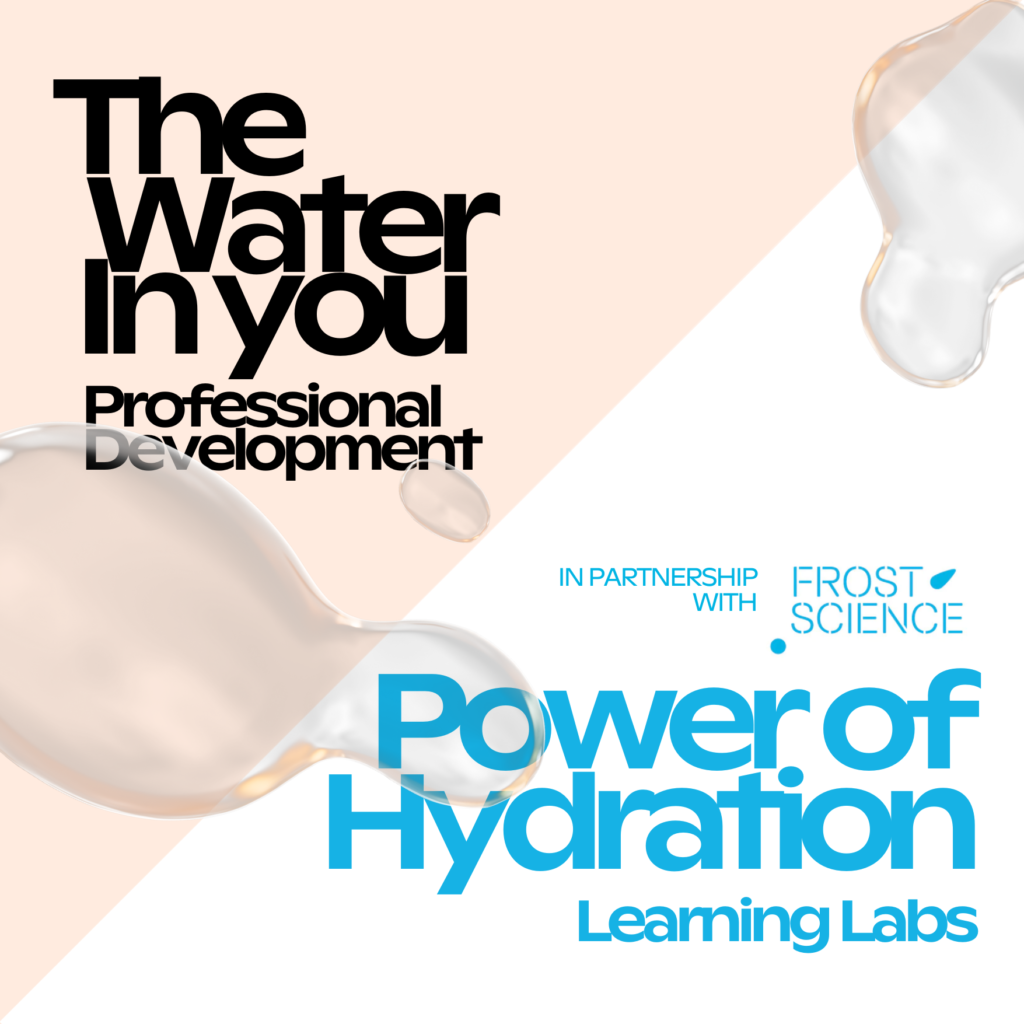Our Education
and Research Programs
Hand-in-hand-with scientists, educators and local communities, we support the water research and education that is vital for our future.

Calling all water science enthusiasts among Miami Dade County Public Schools middle grade teachers! Explore our two new programs: “The Water In You” a half-day Professional Learning session and the new “Power of Hydration” Learning Lab developed in partnership with the Frost Science Museum.
Book your spot and Join us in making a positive impact through hydration & health education!
The Weo Foundation is proud to partner with Miami Dade County Public Schools’ STEAM division to bring you the Water Cycle Station at the Biscayne Nature Center, that hosts field trips from local schools every day.
To make learning more engaging, we have created an animated video that breaks down the different stages of the water cycle. It explains how this natural process enables the availability of water for all living organisms and regulates weather patterns on our planet. From there, students can take an online quiz to reinforce their understanding of these important concepts.
Our partnership with M-DCPS at the Biscayne Nature Center reinforces this connection between science education and environmental conservation! The Water Cycle Station is not just limited to the classroom – it’s an immersive experience that extends to the outdoors. Since its implementation, over a thousand kids have experienced the Water Cycle Station at the Biscayne Nature Center’s Lab!
While Frost Science is well-known internationally for its continuous dedication to science education, we’re thrilled to combine forces in our quest for supporting local science programs in Miami-Dade County Public Schools. Together, we are forging new paths in the health and science realms, with a focus on STEM programs in Title 1 schools across South Florida in partnership with M-DCPS. With this new professional development initiative and resources for teachers that will bridge formal and informal chemical education, we empower young learners to participate in scientific inquiry and build a more sustainable future.
Each elementary school level’s water science curriculum can focus on specific elements designed to engage curiosity and incite a desire to learn more about one of life’s most essential elements. Areas of focus will include: understanding how scientists are following the water, to better understand life on Earth, and to explore its possible existence in other worlds, as well as problem-solving and engineering practices applied to water filtration in order to obtain clean water for human consumption.
Water and its quality is critical to the life and economy of Florida as it is vital for plants, animals, and humans. The majority of the state’s water comes from aquifer systems under. There are two major aquifers in Florida: the Floridan (the whole state), and the Biscayne (South Florida). The Floridan aquifer is the largest and deepest in the state. It holds groundwater like a sponge. Its holes allow the water to move freely through it. The Floridan aquifer stretches for 82,000 square miles beneath Florida and parts of Alabama, Georgia, and South Carolina. In collaboration with Florida International University’s Institute of Environment, Weo Foundation will be assessing the quality of water used in Field crops, and in Animal farms. This study, conducted by researchers in the Conservation & Sustainable Horticulture Lab of Agroecology Program, Department of Earth and Environment, will provide an overview on the quality of water used in the Agriculture sector for diverse major commodities throughout the state of Florida.
Science education has never been more essential for enabling healthier drinking habits, wise water decisions, sustainable practices, and inspiring water-conscious interest in areas like urban and industrial development, farming, conservation, nutrition and domestic use. In partnership with Miami Dade County Public Schools and the Foundation for New Education Initiatives, we dedicated our first-ever program to generating community impact through water science education by supporting nine Title 1 / STE(A)M designated elementary schools–and benefiting their 4,405 students–throughout the 2021-2022 school year`. Through this grant program, we embedded water science into our public elementary STEM curriculum to instill awareness toward our most valuable resource and empower positive change through equitable access.